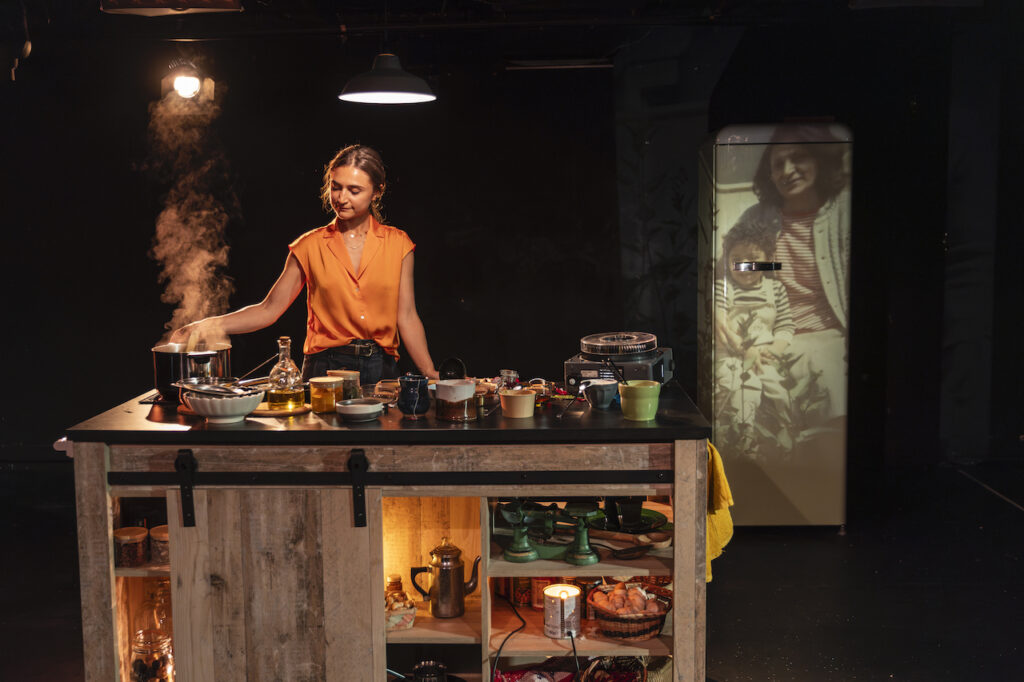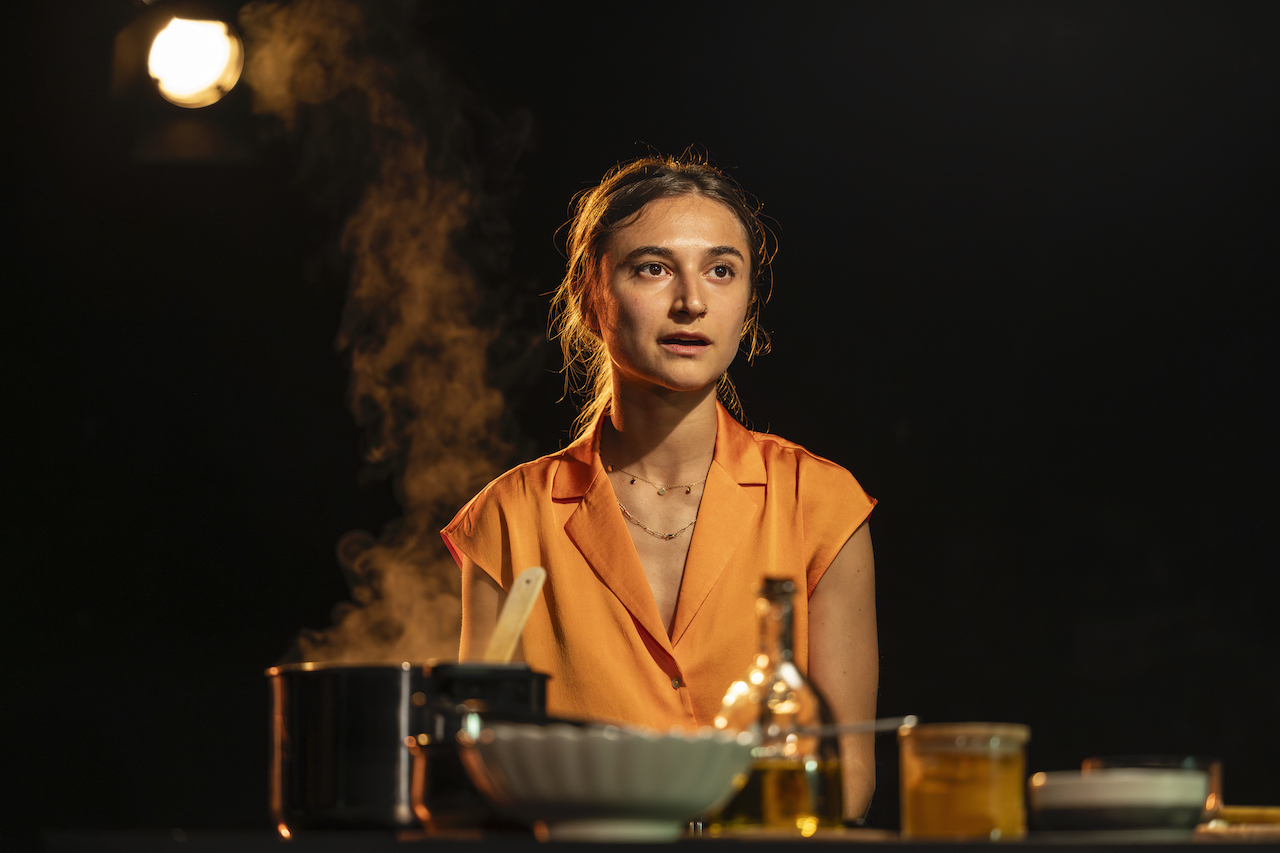
14 – 18 October
A small kitchen glows in low light: an island laid for preparation, jars of herbs lined like sentries, a thin fridge humming quietly. It could almost be a daytime cookery show, until the first hummed note under the breath and the first clean slice of a knife. The domestic scene tilts into something deeper. What follows is a sensory vigil for a life dismantled and carefully remade.
Written by Hannah Khalil with Iranian-born writer and cook Atoosa Sepehr, and directed by Chris White, this one-woman piece invites us to inhabit a ceremony rather than a plot. Over seventy quiet, deliberate minutes, Isabella Nefar cooks a Persian dish in real time while tracing her flight from an abusive marriage, and the slow work of starting again in London. Khalil’s text is spare and elliptical, memories surfacing through scent, rhythm and gesture. Nefar’s performance feels contained, the poise of someone who has learned to speak without spilling. The cooking becomes its own language: the crumble of dried herbs between fingers, a landslide of turmeric, the steady stir that steadies a tremor.
Design carries much of the storytelling. Pip Terry’s kitchen is both refuge and cage. Marty Langthorne’s lighting transforms the space from domestic warmth to spectral menace, while Dan Balfour’s sound design, part hum and part heartbeat, draws us between present calm and the flicker of remembered threat. Together they render the ordinary luminous, the act of cooking charged with danger and devotion.
Khalil and Sepehr’s writing becomes an act of reclamation. The inherited expectations of wifehood, to serve and endure, are quietly unpicked and rewritten through food. A recurring motif of Wuthering Heights surfaces like a fever dream, its romance turning to obsession, its devotion to control. The husband’s presence lingers at the edges, unseen but inescapable.
As the story unfolds, tension never fully dissipates, even as steam billows from the pot like weather. The audience’s small act of helping prepare the finishing herbs becomes a gesture of communion, an echo of shared survival. This is theatre that moves by sediment rather than spectacle, each gesture settling until the air itself seems to change.
By the end, the theatre smells of herbs and heat, of something both domestic and divine. Nefar stands in her kitchen, her altar, her battlefield, offering up a dish, a memory, a self. My English Persian Kitchen lingers like spice in the dark: measured, intimate, and quietly luminous.
★★★★☆ Tilly Marshall, 16 October 2025
Photography credit: Eliie Kurttz
